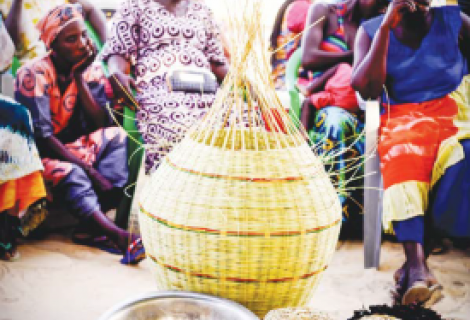
Women’s access to markets remains a significant challenge for many of the groups that ActionAid works with. Women face multiple barriers and inequalities to accessing markets, which are often seen as the domain of men. Along with the challenge of climate change, these factors can make it difficult for women to make sustainable livelihoods. Many groups lack a deep understanding about what markets are, how they operate, what the buyers in the market are really looking for and how to establish win-win relationships with buyers. Some producers’ groups do not know if the economic activities that they engage in are truly profitable or what it would take to make them profitable. In many cases, groups just need simple adjustments for becoming more sustainable and profitable. In other cases, however, a group may need more complex interventions.
Most frameworks on market access depend on market assessments made by external consultants and are focussed on income generation alone. ActionAid’s approach is different. This framework empowers women to undertake and act on the assessment themselves. It emphasises the importance of analysing the market from a gender perspective, examines the economic, social and environmental sustainability of initiatives, and ensures that all actors in the market can share the value equitably, creating wealth for all.
This handbook uses a range of participatory tools to explore how women and local communities can identify the challenges and potential to access markets. We hope that local groups will be able to use this methodology with support from ActionAid and its partners to improve the way they understand, access and benefit from markets. Our objective is for local groups to follow the steps proposed here to increase their self-understanding about their weaknesses, challenges, potentialities and market opportunities. The aim is to help local groups to be more self-sufficient and independent, able to take control of their initiatives to access to markets, and capable of identifying their own demands related to knowledge, infrastructure, market relations and technologies. We believe that local groups are better positioned to identify their weaknesses, challenges and problems and the ways in which to tackle them.